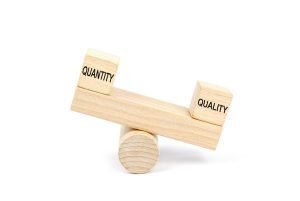Marketing campaigns are quite helpful as these help companies deliver a targeted message to a specific audience through a specific channel. Online campaigns are a crucial part of any lead generation strategy. However, not all marketing campaigns generate the kind of results we expect them to. This is because we don’t do enough homework and make unwitting mistakes that hurt the campaign both in the short and long term. “The most shocking thing to note here is that most marketing managers might not even know they are making the mistakes.”
How would you know if you made the same mistakes? Well, sample the results of your previous campaigns. If they are lacklustre, they don’t produce the conversions you’d want, and you feel stressed out, you are probably making marketing mistakes we will discuss in this post. So, don’t sweat it. Let’s discuss the weak spots and get rid of them once and for all.
Poorly defined buyer persona
This is a very realistic scenario as breaking down an audience to find a suitable niche audience is not easy. At the same time, finding the right audience isn’t a stroke of luck. Targeting the wrong market will result in your marketing campaigns being shown to customers that have nothing to do with your company, products, or services. Avoid this mistake by spending time learning about your target audience. Create a buyer persona that helps you identify the characteristics of your potential customers. A clear understanding of your potential clients will help create better marketing campaign strategies.
Too little budget to work with
Finances play a major role in this day and age, especially when it comes to marketing online. It’s no secret that organisations that have a hefty marketing budget often come on top of the competition. They have better teams that create better marketing strategies. A marketing campaign budget is a massive constraint that can push your strategy forward or make you suffer through setbacks. So, should you have a high marketing budget? No, that’s not the point. The idea is to become realistic about what you wish to achieve through your marketing strategy. Figure out whether or not the budget you have is enough to make the strategy work.
Weak CTA
So you have a solid content strategy for your marketing campaign. But, you don’t just want the clients to consume the content and not take action. After all, you have a marketing goal to fulfil. That’s precisely where CTAs save the day. CTA or Calls-to-Action are pieces of copy that encourage clients to take action. Potential clients will often miss out on the CTA if the copy is weak and not appealing to them. Therefore, spend enough time researching and split testing different CTAs across your marketing channels. A perfect CTA has the following qualities:
- They are clear and concise.
- They are action-oriented.
- They speak in first-person.
- They create a sense of urgency.
- They are IMPOSSIBLE to miss.
- They are easy to find (use contrasting colours).
Lack of branding
Indeed, you’d want to create a customer-centric marketing strategy. But, how would your potential clients know that it’s you and not some other brand sending them the messages? Your audience should know who’s creating such valuable and life-changing content. Make sure you tell your brand story consistently to increase brand awareness and build a solid business-client relationship.
No specific marketing goal
This is a no-brainer. Seems like an obvious mistake, right? But it’s quite natural for marketing managers to get pumped up listening to individual marketing ideas and lose sight of the set marketing goals. Before discussing that in detail, ask yourself this question – “do you even have a set marketing goal?” Creating a campaign strategy without putting the larger goal on the board will automatically render your campaign unsuccessful. Because how exactly will you measure its success? Most marketing managers reading this post might have lead generation as their marketing goal. So, make sure you create a strategy that aligns with your strategy.
Producing brand-centric content
This is a common marketing mistake that even the biggest brands make. The content strategy within the marketing strategy should highlight your brand, for sure. But, it shouldn’t BE about your brand. Self-obsession kills marketing strategies as they fail to provide value to people. Ditch this common mistake by creating highly targeted content that is for your audience. Provide value that is educational, entertaining, or inspiring. No matter what kind of content you produce, it should always speak to the audiences’ needs and wants. The moment you make this switch, it will become easier to encourage them to take the desired action. Brainstorm heavily to pen down the problems your audience faces, the desires they might have, and how your marketing campaign can fill the void.
 Quantity > Quality
Quantity > Quality
The more email campaigns the better, right? Wrong. Creating more content will not get you more people. Sending out emails frequently won’t help you generate more leads. Increasing the number of emails, as we discussed in one of our previous posts, might make people unsubscribe or report your domain! So, what should marketing managers focus on, if not quantity? Two things — quality and value. You must strive to create campaigns that make an impact on your audiences’ lives. We highly recommend creating high-value and evergreen content that you can use across channels — a perfect strategy to cut down on fluff.
Poor campaign timing
Timing is everything in online marketing. Indeed, you can publish your marketing campaigns whenever you feel like it. But, you will eventually land on the realisation that some times are better than others. Marketing managers often miss out on this opportunity, which doesn’t help their campaign strategy reach its full potential. We have discussed timing, especially for email marketing campaigns, in much detail to help B2B companies make better campaign decisions. So, do check that out. Besides that, you will mostly want to couple your marketing campaigns with holidays, special events, seasonal events, company milestones, and more. The idea is to focus on natural tie-ins instead of just pushing the emails for the sake of running a marketing campaign.
Analysing the wrong metrics

Zero focus on experimenting
Lastly, marketing managers that like playing it safe often lose the opportunity to grow their organisation and beat the competition. The online marketing landscape entails fierce competition, and almost all companies are willing to go the distance to get a larger market share. Marketing managers and stakeholders run the risk of creating lacklustre marketing strategies if they happen NOT to experiment or deviate from the norm. Success comes to those that make bold moves. So if you feel that your marketing campaigns have become stagnant or you’re not generating enough results, go ahead and experiment. Start small and mix things up. Learn from the results and prepare better marketing strategies.
Keep reading!
What’s the point of the above post? Well, we want to make sure the marketing managers reading the post keep learning and help their team grow in confidence. We believe that every new marketing campaign comes with lessons worth documenting. Therefore, we suggest you push your team to use the campaigns to educate themselves and figure out if they need to expand their skills — all this to refine their current marketing strategy and achieve the set goals. We hope this post helped you get acquainted with the most common marketing mistakes.



 Quantity > Quality
Quantity > Quality